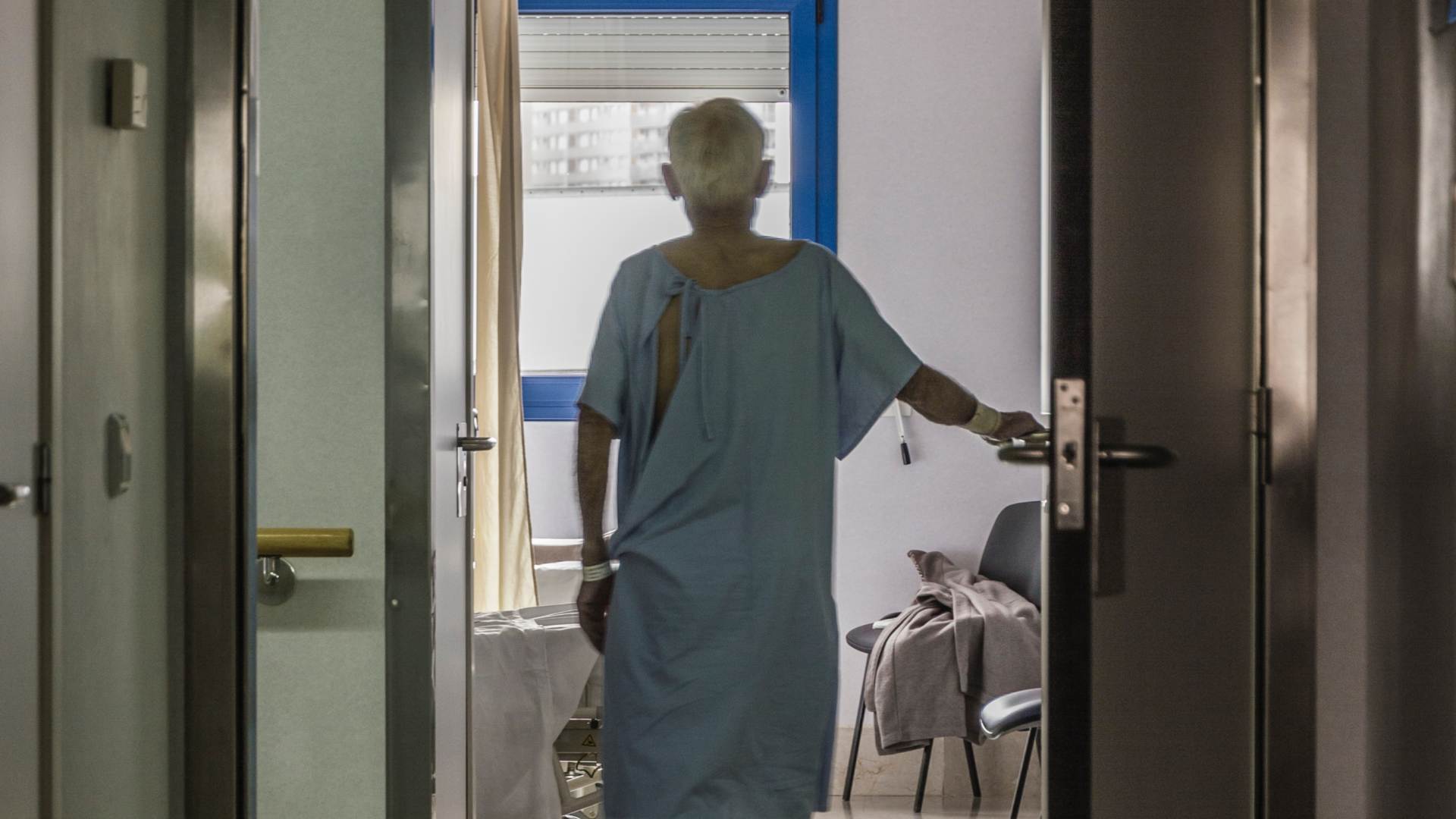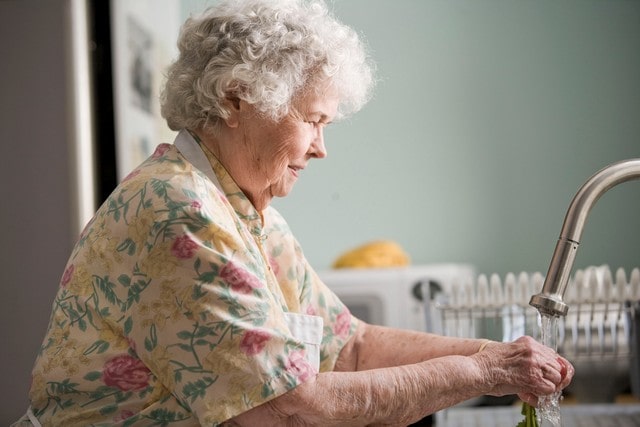
Understanding the Signs of Nursing Home Abuse: Key Indicators and Protection Measures






Unmasking Nursing Home Abuse: A Family’s Guide to Awareness and Action
Understanding the Signs of Nursing Home Abuse refers to recognizing the warning signs that an elderly person may be suffering harm or neglect in a long-term care facility.
Abuse can take many forms, especially in nursing homes, including physical, emotional, and financial mistreatment, and it’s important to notice signs that may indicate a loved one is not receiving the care they deserve. This can include unexplained injuries, changes in behavior, or withdrawal from social activities. Identifying these signs early is key to ensuring the safety and well-being of nursing home residents.
This topic is highly relevant to families who have loved ones in nursing homes. When you know the signs of abuse, you can act quickly to protect your family members and prevent further harm. The emotional and physical well-being of elderly individuals is of utmost importance, and understanding these warning signs can give you the tools needed to intervene if necessary.
At Sabbeth Law, PLLC, based in Vermont, we are committed to helping families recognize and address the signs of nursing home abuse. Our team is here to support you by offering legal guidance and assistance to ensure your loved ones receive the care they deserve. We work tirelessly to hold nursing homes accountable and help you take action to protect your family.

What Nursing Home Abuse Looks Like: Recognizing the Signs
Nursing home abuse is a troubling reality that many families face when entrusting the care of their loved ones to professionals. Recognizing the signs of abuse is crucial to ensure the safety and well-being of residents. Abuse can manifest through various indicators, some more visible than others, and early detection is key to addressing the situation promptly.
Physical signs are often the most apparent. Look for unexplained bruises, cuts, or burns. These could indicate possible abuse by nursing home staff or other residents. Frequent falls or injuries related to falls should also raise concerns, as these may point to neglect in nursing homes.
Emotional abuse can leave less visible scars. Sudden changes in behavior, such as withdrawal, depression, or anxiety, may suggest that a resident is facing verbal or psychological abuse. Trust your instincts if loved ones appear unusually fearful or distressed around certain caregivers.
Neglect is another form of abuse. Signs include poor hygiene, unusual weight loss, or untreated medical conditions. These neglect indicators can result from a lack of attention or inadequate care.
Financial exploitation is a less obvious form of nursing home abuse. Keep an eye out for unexplained transactions, missing belongings, or sudden changes in financial situations. Residents may fall prey to staff members or others seeking to take advantage of their vulnerabilities.
It is imperative to take action if any of these signs are present. Families can contact legal professionals for guidance and support in holding nursing facilities accountable. Recognizing and addressing these warning signs not only protects loved ones but also promotes a safer environment for all residents.
Contact UsWhat Is Nursing Home Abuse?
Nursing home abuse occurs when caregivers harm residents through physical, emotional, sexual, or financial mistreatment. These abuses violate the trust placed in caregivers to provide safe and respectful care. Physical abuse may include hitting or restraining residents, resulting in injuries or worsened health.
Emotional abuse involves verbal assaults, threats, or harassment that affects the resident’s mental well-being. Sexual abuse consists of any non-consensual sexual contact. Financial abuse occurs when a caregiver improperly uses a resident’s funds or assets.
Elderly residents are especially vulnerable to abuse due to factors like impaired cognitive abilities, isolation, and dependence on caregivers. Many victims of elder abuse may not report it due to fear or an inability to do so. Often, there are subtle warning signs like unexplained injuries or changes in behavior.
We are committed to addressing these issues by understanding the nursing home environment and working with professionals to support victims. It’s essential for families and loved ones to vigilantly watch for abuse signs and advocate for the highest care standards to protect elder well-being.

Common Types of Nursing Home Abuse
Nursing home abuse manifests in various forms, often leading to significant harm. Our focus here is on understanding these abusive behaviors to aid in their identification and prevention.
Physical Abuse
This involves intentional harm resulting in injuries such as bruises or fractures. These can be identified by noticing unexplained injuries or frequent hospital visits. It’s important to observe physical symptoms and changes. For further reading, check out this resource on physical symptoms.
Emotional and Psychological Abuse
Verbal assaults, isolation, and threats are common forms. They often lead to anxiety or depression in victims. We could spot these by recognizing behavioral changes like fearfulness or withdrawal.
Neglect
Neglect in nursing homes often results in poor hygiene, malnutrition, and unsafe living conditions. Being vigilant for signs like dehydration and poor personal care is crucial. A detailed guide on neglect and its symptoms provides valuable insights.
Sexual Abuse
This sensitive issue can be identified through signs such as defensiveness or injuries in sensitive areas. It is essential to report and investigate suspicions without delay.
Financial Abuse
Financial exploitation takes many forms, including unauthorized withdrawals and changes to legal documents like wills. Monitoring financial statements regularly can help identify irregularities. It is vital to be proactive in safeguarding against financial exploitation.
Each of these types of abuse is significant and requires immediate action to protect the vulnerable elderly population in nursing homes.
Warning Signs of Nursing Home Abuse
Nursing home abuse can manifest in various ways. Bedsores and unexplained injuries like bruises or broken bones can be alarming indicators. Physical signs of abuse should always be taken seriously. Regular monitoring is essential.
Additionally, neglect might become evident through signs such as malnutrition and dehydration. These can result from inadequate nursing care. If a resident is suffering from these conditions, immediate attention is required.
Poor hygiene and unsanitary living conditions may also hint at neglect. Observing the cleanliness of both the individual and their surroundings is crucial in assessing their care quality.
Behavioral changes can be equally telling. Withdrawal from social interactions or unusual behavior can suggest emotional or psychological abuse. These changes warrant our attention and investigation.
The potential for financial abuse should not be ignored. Look for signs like unexpected financial charges or missing personal items. Awareness and vigilance are key in protecting the rights and dignity of nursing home residents.
Contact UsWhat to Do If You Suspect Nursing Home Abuse
Identifying signs of nursing home abuse can be distressing, prompting us to take immediate action. The first step we should consider is thoroughly documenting any evidence of mistreatment. This can include taking photographs of injuries or unsafe conditions and writing detailed notes about observed incidents.
After gathering evidence, reaching out to the nursing home administration. It’s essential to discuss our concerns directly with them, as this can sometimes resolve misunderstandings or prompt corrective action. However, if the issue persists, more formal steps might be necessary.
Contacting Adult Protective Services (APS) can be one effective way to report the situation. APS offers support and can initiate investigations into allegations of abuse. Additionally, consulting with a long-term care ombudsman may provide us with insights and assistance as they practice advocating for residents’ rights.
Legal action might become a necessary path, especially if the abuse is severe or ongoing. Engaging an attorney with experience in nursing home abuse can help us navigate the complexities of the legal system. They can guide us through the process of seeking justice and possibly compensation for the victim.
In situations where we witness immediate danger or harm, contacting law enforcement is imperative. They can ensure the safety of the resident and start a criminal investigation if needed. Prioritizing the welfare and protection of the residents should remain our foremost concern.

How Sabbeth Law, PLLC, Can Help
Addressing nursing home abuse is challenging, but our team is here to assist. With years of experience, we are deeply committed to obtaining justice for victims and their families, ensuring their stories are fully told.
We provide free case evaluations to discuss the specifics of your situation, offering compassionate and client-focused legal services. Our commitment lies in not only understanding clients but also actively advocating for their rights.
Our firm is experienced in handling nursing home abuse cases and pursues claims diligently. Legal representation is crucial in cases involving neglect or mistreatment, as the complexities often require the experience of a nursing home abuse attorney.
Our dedication to justice sets us apart, prioritizing the needs of victims and their families above all. For more information on how we can assist you, explore our practice areas.
Contact Us Today
Recognizing and addressing nursing home abuse is crucial. If you suspect any mistreatment, it’s important to act quickly to protect your loved ones.
Our firm is dedicated to providing support and legal assistance in these difficult situations. With our experience, we stand ready to assist you in seeking justice and ensuring a safe environment for your family members.
Don’t wait to seek help. Reach out to us for a free consultation to explore your options and understand the next steps for your case. We are committed to advocating for your rights and ensuring fair treatment in nursing homes.
Connect with us directly for any concerns related to nursing home abuse. Our legal team is here to listen and support you through every phase of this journey.
Stay informed and proactive. For more detailed assistance, contact us today.
We value the opportunity to provide guidance and strive to make a difference for you and your family.
Contact UsPractice Areas
Client Testimonials
LUKE PARMENTER“Immediately after my son’s injury at work, he was treated poorly. Over the course of the next few days it became even worse, so I called Mike and he and Crystal have been absolute lifesavers during the process. Mike is not your typical stuffed suit lawyer who only cares about the bottom line he genuinely cares about his clients and his assistant Crystal is beyond amazing! My thanks to you both!”
Client Testimonials
“Immediately after my son’s injury at work, he was treated poorly. Over the course of the next few days it became even worse, so I called Mike and he and Crystal have been absolute lifesavers during the process. Mike is not your typical stuffed suit lawyer who only cares about the bottom line he genuinely cares about his clients and his assistant Crystal is beyond amazing! My thanks to you both!”
LUKE PARMENTER
“I could never ask for a better attorney, to fight for me, to believe in me, and have faith in me, than what I found in Mike Sabbeth, He doesn’t treat you like a client, he treats you as if you are one of his own family members, He will fight for you, with all he has, and is ALWAYS up front and honest with you about everything!”
SANDRA DRUGE
